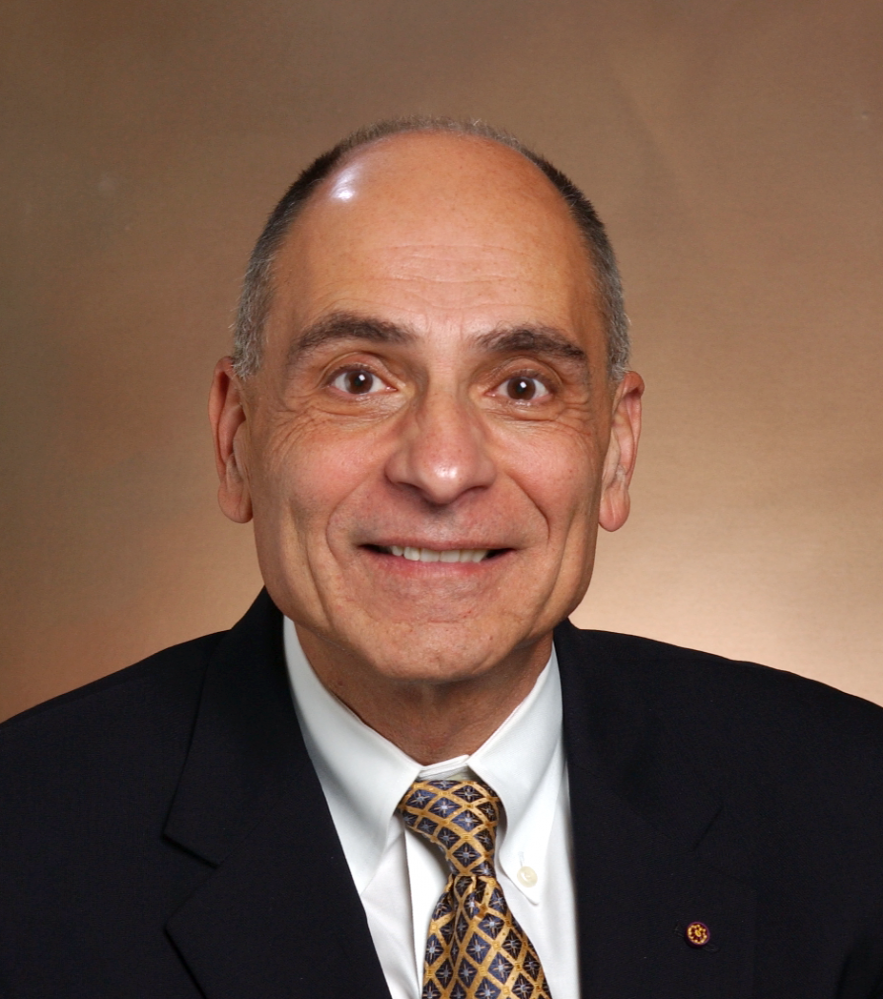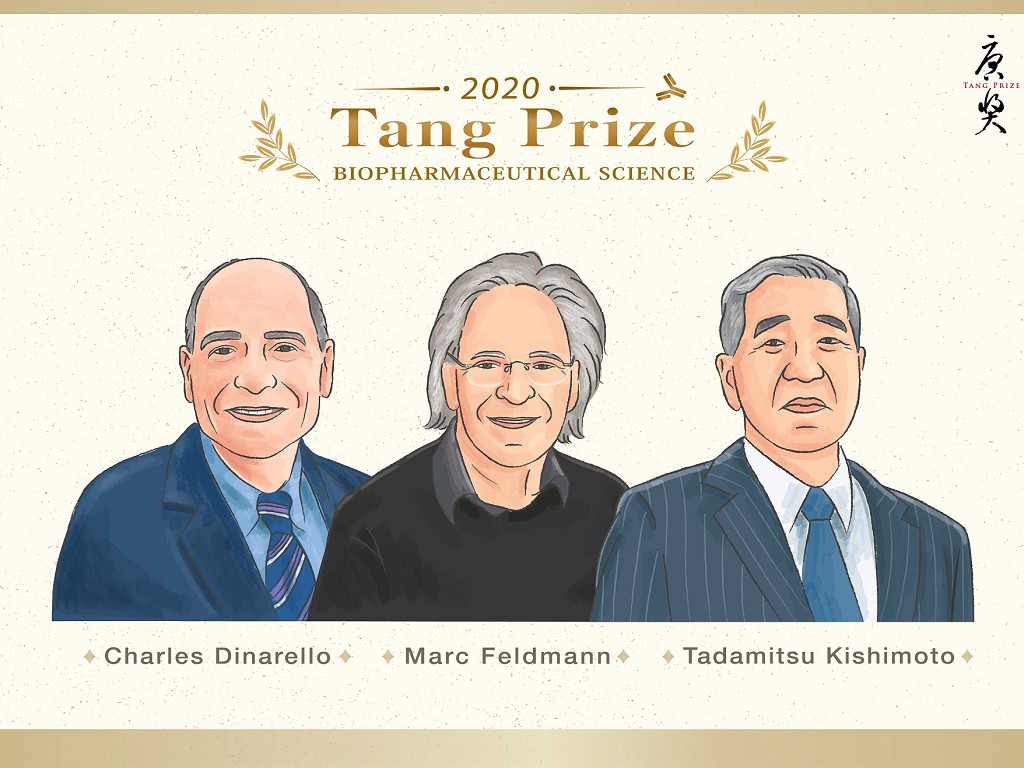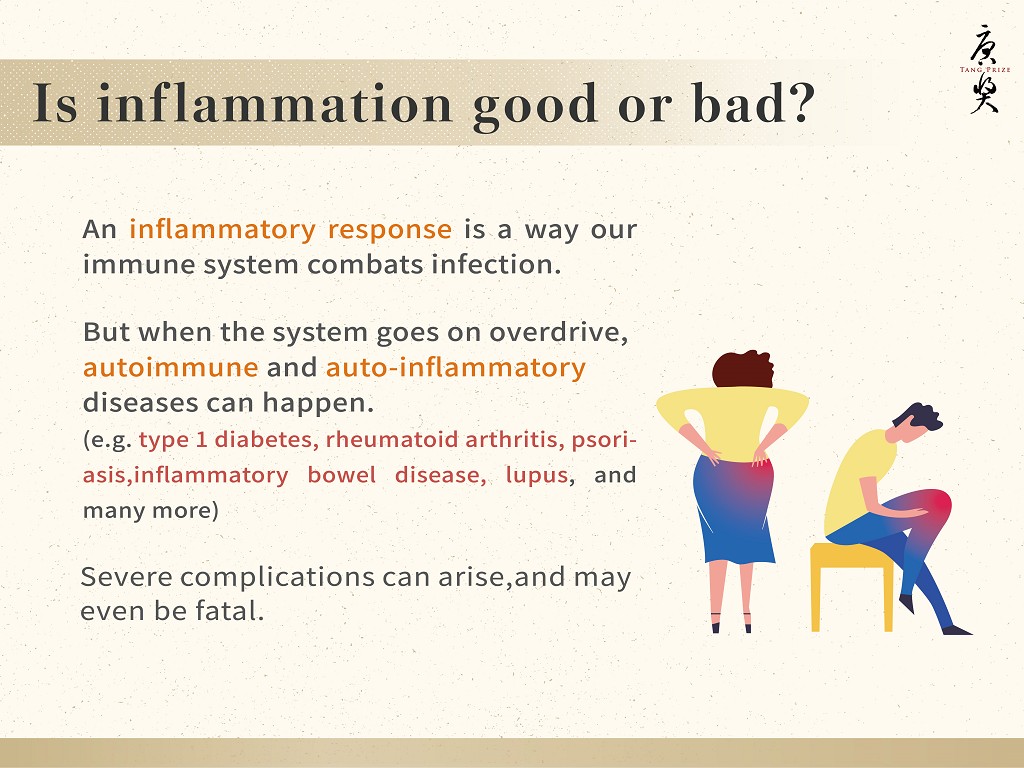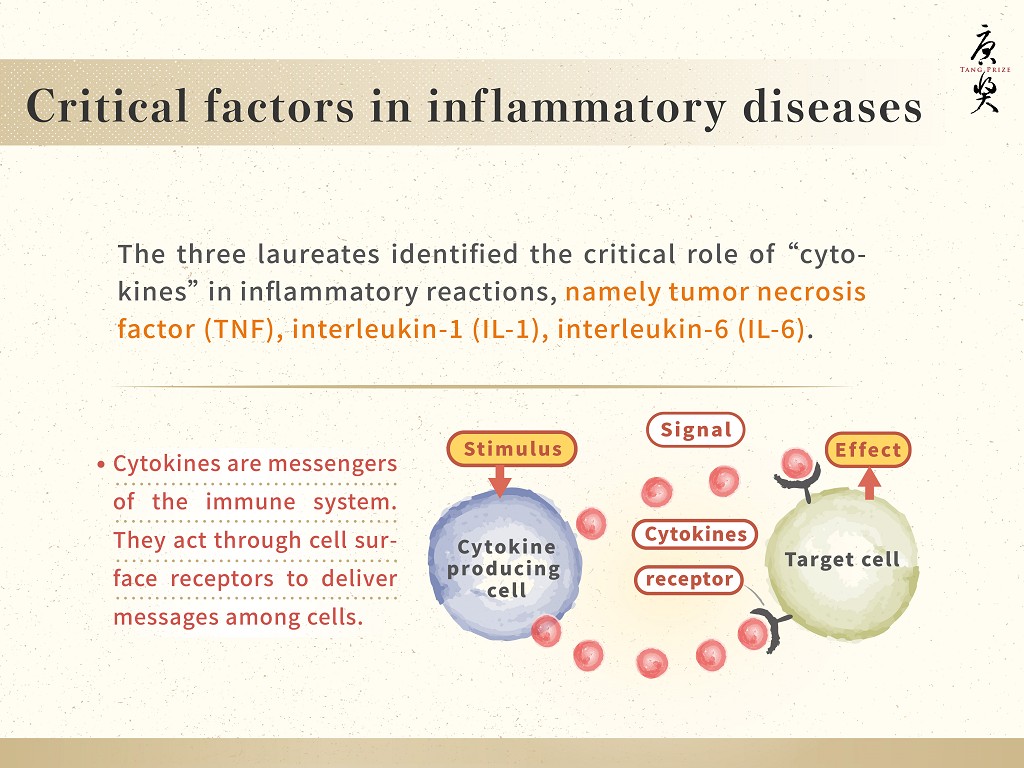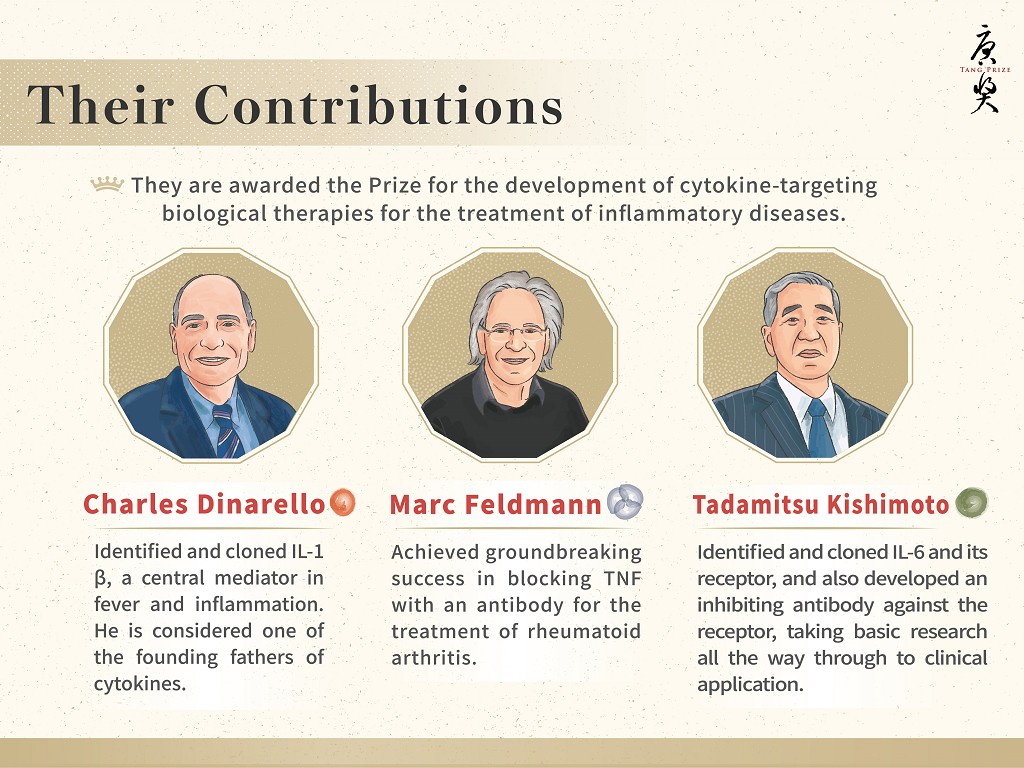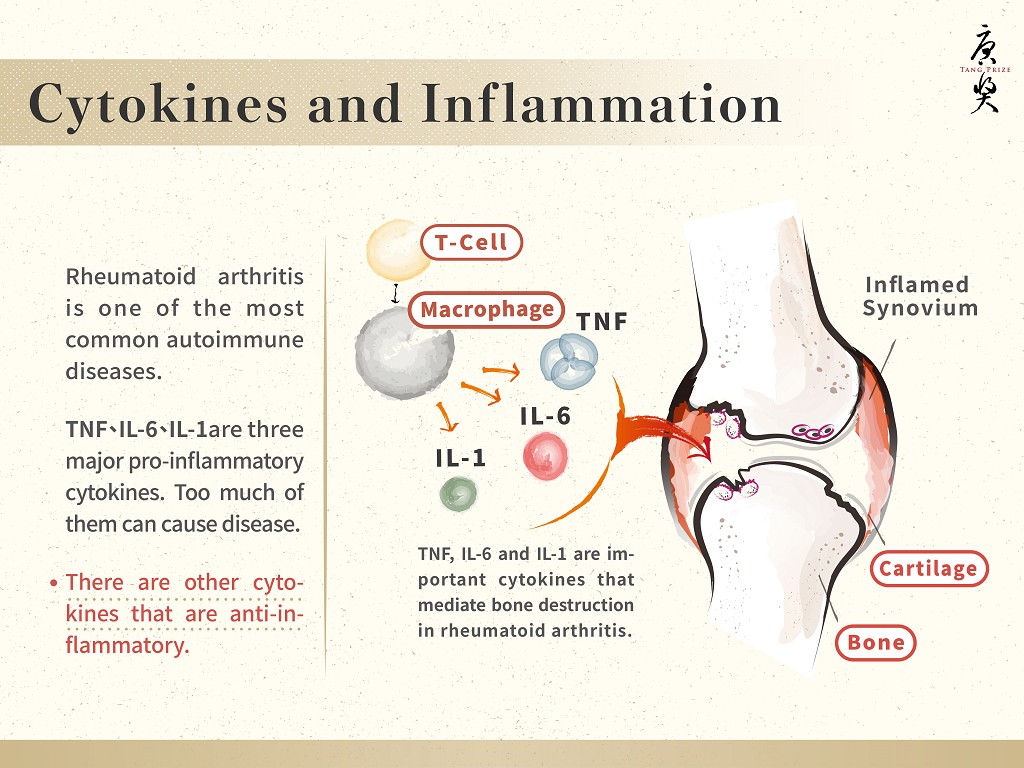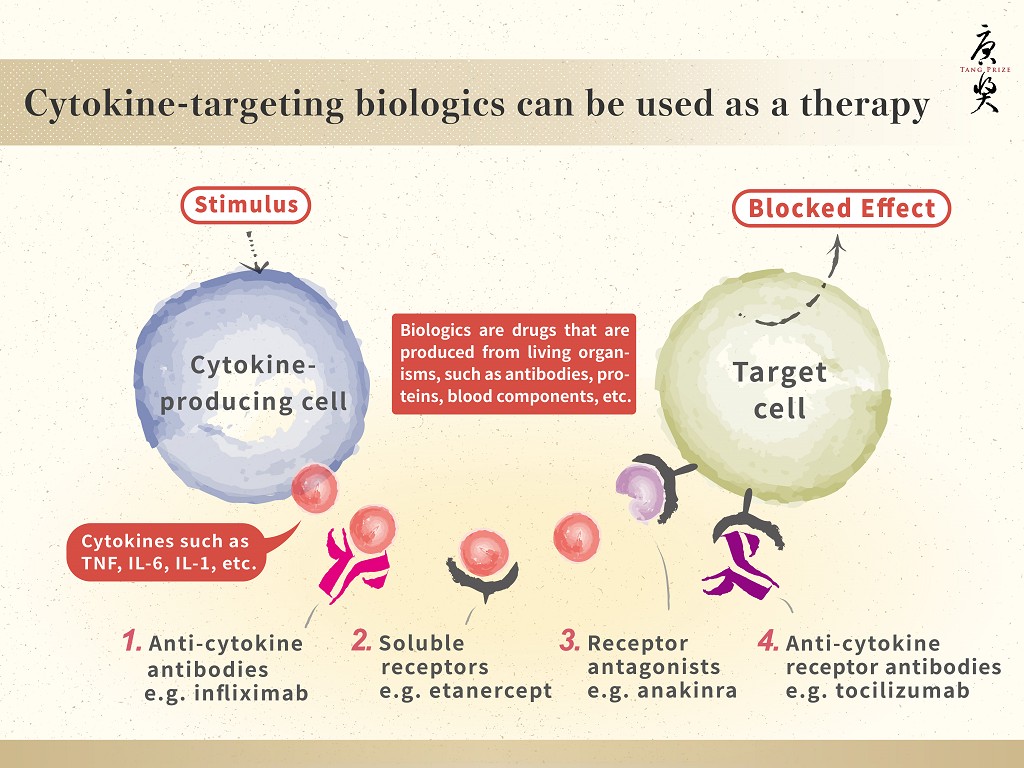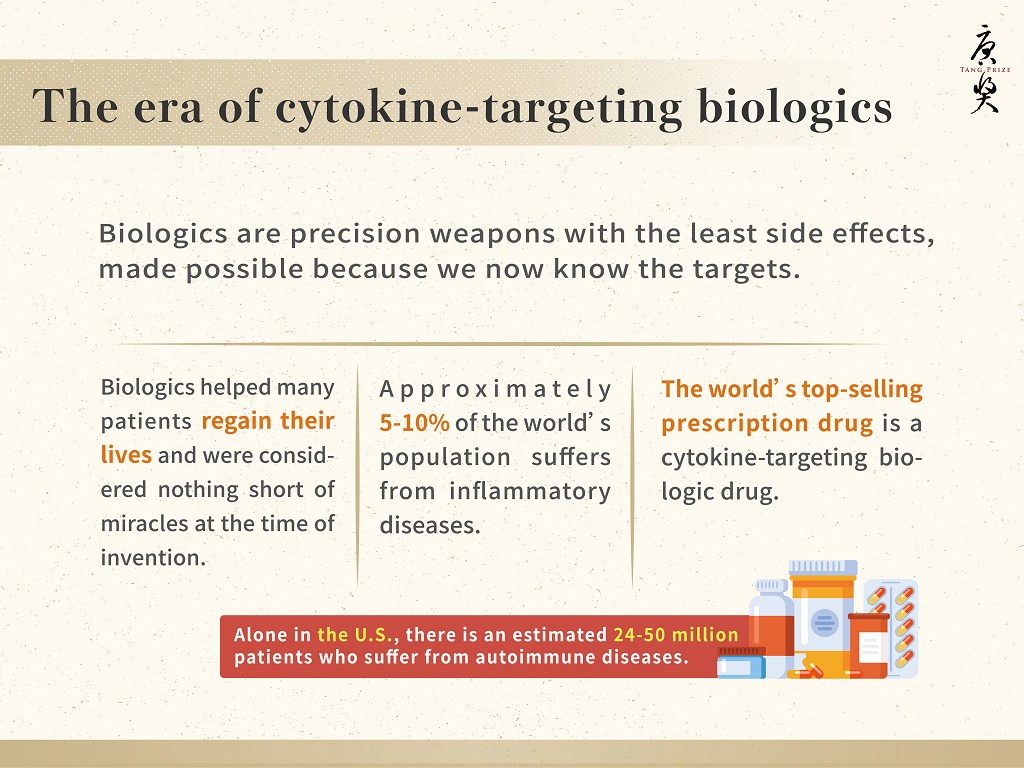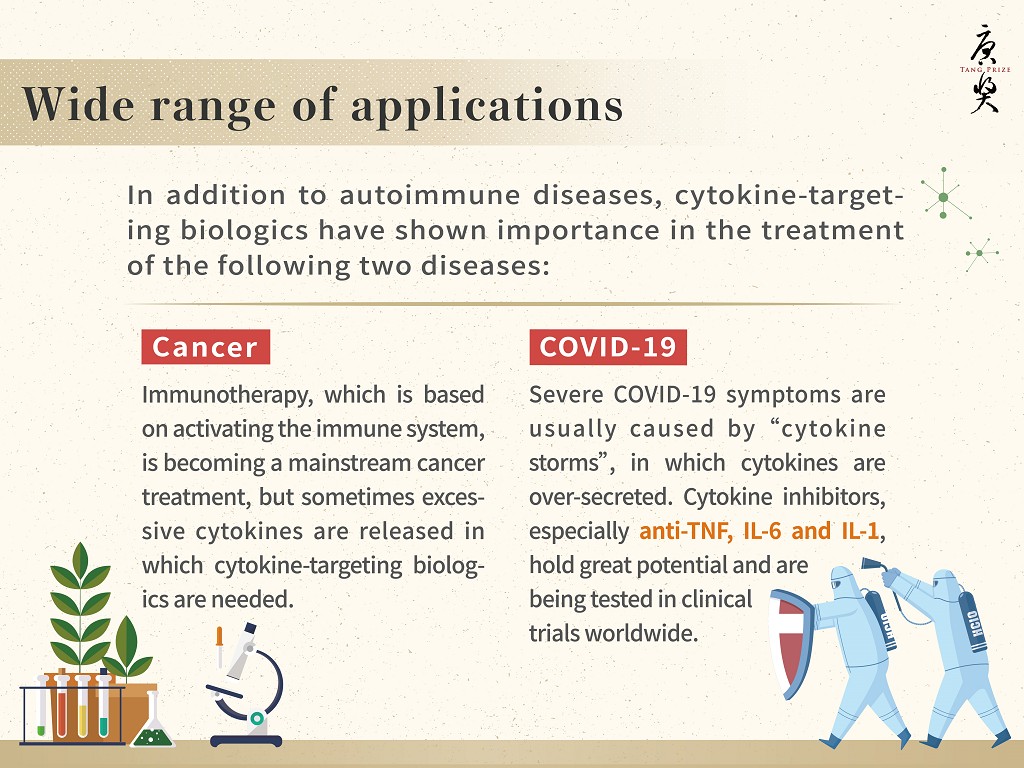Development of biologic drugs, or biologics, has revolutionized the treatment of diseases. This year, the Tang Prize Foundation recognizes the development of biologics targeting three of a large family of proteins in our immune system called cytokines. Cytokines are secreted proteins that have profound multi-organ, multi-tissue and multi-cellular impact on cell signaling. These proteins are produced by a broad range of cells, with immune cells being a major source and they act through cell surface receptors to deliver diverse intracellular messages. They are referred to as immunomodulating agents by being important in host immune responses to infection, and are associated with the development and progression of a variety of diseases, including inflammatory diseases, autoimmune syndromes and cancer. Some cytokines are designated as interleukins, initially used to describe those expressed by white blood cells (leukocytes), deriving from (inter-) "as a means of communication" and (-leukin), to reflect the fact that many of these proteins are produced by leukocytes and act on leukocytes. Tumor necrosis factor (TNF), interleukin-1 (IL-1) and interleukin-6 (IL-6) are among the most extensively investigated cytokines by the scientific community and biologics targeting them are among the most widely used biopharmaceuticals. The Tang Prize awardees have all made transformative contribution in the discovery and/or therapeutic development targeting these three cytokines.
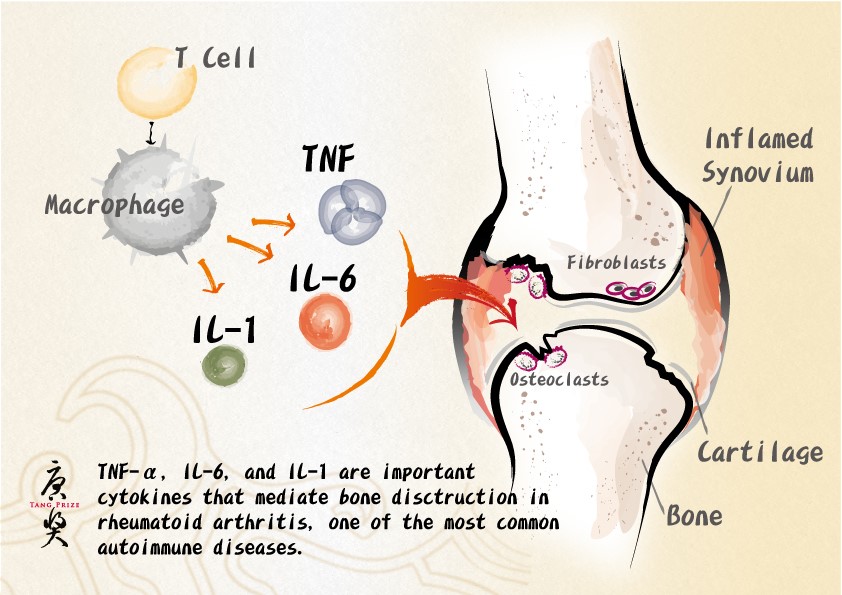
Tumor necrosis factor (TNF) is a multifunctional cytokine that plays important roles in diverse cellular events with its primary functions being the regulation of immune cells. Dysregulation of its production has been implicated in a variety of human diseases, including inflammatory diseases, autoimmunity and cancer. It is best known as a cytokine secreted by inflammatory cells and having strong pro-inflammatory functions. Dr. Marc Feldmann, professor at the University of Oxford and a Senior Research Fellow at Somerville College, Oxford, UK, was the first to demonstrate that diseased joints in patients suffering from rheumatoid arthritis have far more pro-inflammatory cytokines than normal, and identified TNF as the key one. He then collaborated with his colleagues to study the disease mechanism in rheumatoid arthritis and proposed to target TNF for treating arthritis. He showed that blocking this cytokine with a specific antibody reduced the inflammation in a mouse model. He then worked with a company to successfully develop an anti-TNF antibody for the treatment of rheumatoid arthritis. Today, anti-TNF biologics have become a standard therapy for suppressing the inflammatory and tissue-destructive pathways of rheumatoid arthritis as well as multiple autoimmune and inflammatory diseases, converting them from severely debilitating conditions to largely manageable diseases. Thus, anti-TNF therapy is a major advance in the treatment of autoimmune and inflammatory diseases. The contributions of Dr. Feldmann include hypothesis forming, drug discovery and clinical translation. He transformed his findings in the laboratory into a powerful therapy.
Interleukin-1, IL-1α and IL-1β are cytokines that participate in the regulation of immune responses and inflammatory reaction. Dr. Charles Dinarello, currently Professor of Medicine at University of Colorado, USA, was searching for endogenous pyrogen-inducing proteins and purified a protein now named IL-1b and then cloned the gene encoding this protein. Subsequently, another related protein was identified by other groups and named IL-1 receptor antagonist (IL-1Ra), which can block the biological activities of IL-1. A recombinant version of IL-1Ra was developed for the treatment of rheumatoid arthritis and later received FDA approval. These clinical developments established IL-1 as mediators of inflammation and support Dr. Dinarello's contributions to cytokine biology and the pathogenesis of inflammatory diseases. He is considered one of the founding fathers of cytokines, and his pioneering work paved the foundation for establishing IL-1β as a potent mediator of fever and inflammatory diseases, which led to the development of therapeutics for this important cytokine.
Dr. Tadamitsu Kishimoto, Professor at Osaka University, Japan, discovered and cloned a cytokine that regulates antibody production while investigating the basic mechanisms of immune response. That cytokine was later named interleukin-6, or IL-6. His group later identified and cloned its receptor and demonstrated the involvement of IL-6 in the pathogenesis of various inflammatory diseases, including rheumatoid arthritis, and juvenile arthritis. He prepared a monoclonal anti-IL-6 receptor antibody and helped conduct several large-scale trials on the efficacy and safety of the antibody in patients with rheumatoid arthritis, as well as in children with juvenile arthritis. This culminated in the approval of the medicine by the FDAs in various countries and used for treatment of multiple autoimmune diseases. Dr. Kishimoto’s work transformed the cytokine field and converted it from descriptive biology to modern molecular science and medicine. His work has also led to major clinical advances and development of new therapeutics for severe multi-organ chronic diseases. The contributions of Dr. Kishimoto include basic discovery, hypothesis forming, drug discovery and clinical translation.
All three cytokines are critically involved in the pathogenesis of a variety of diseases. Notably, they are key components of a “cytokine storm”, which can be triggered by various factors including infections and is a major complication in viral infectious diseases, including COVID-19. Remarkably, biologics targeting the three cytokines, respectively, have been either used successfully in treatment of cytokine storms in patients suffering from COVID-19 or are being investigated as a therapy.
The pioneering work of Drs. Feldmann, Dinarello, and Kishimoto is transformative. Their research led to the development of biopharmaceuticals that have benefited millions of people suffering from autoimmune and inflammatory diseases.
